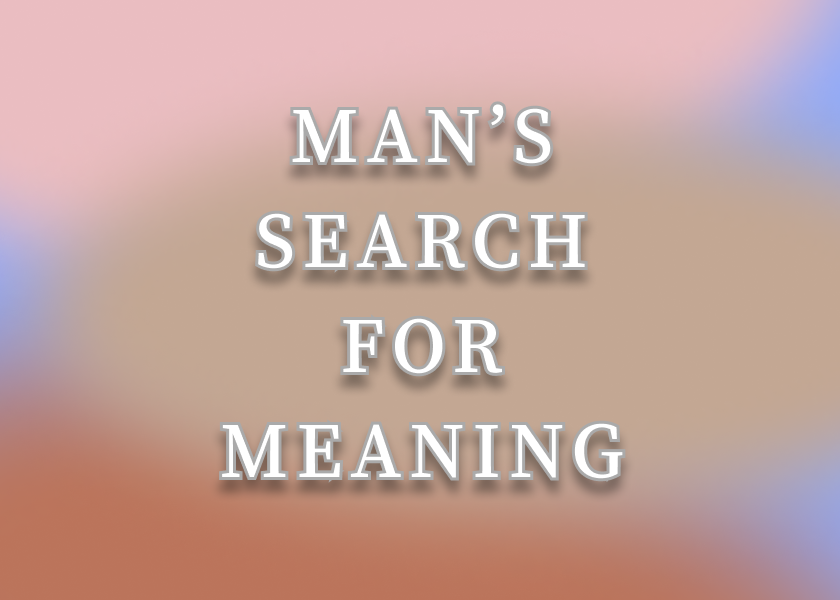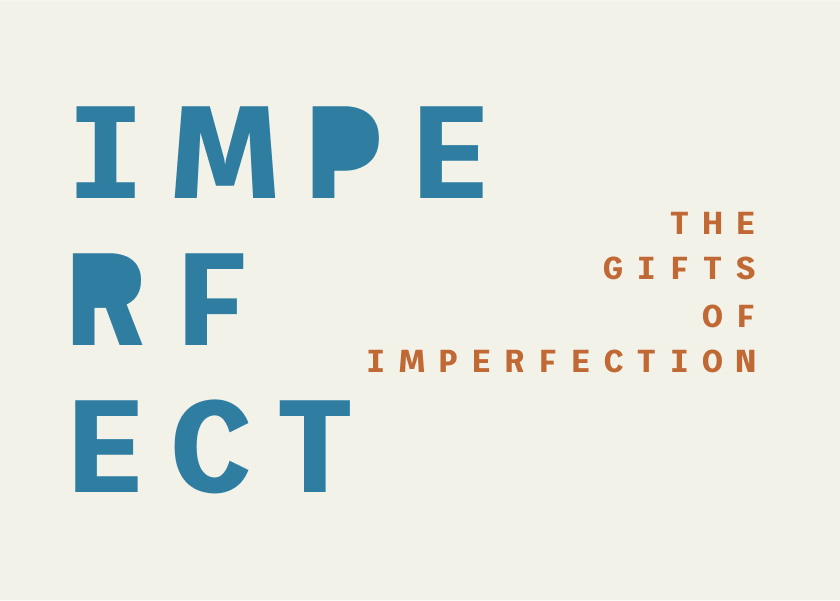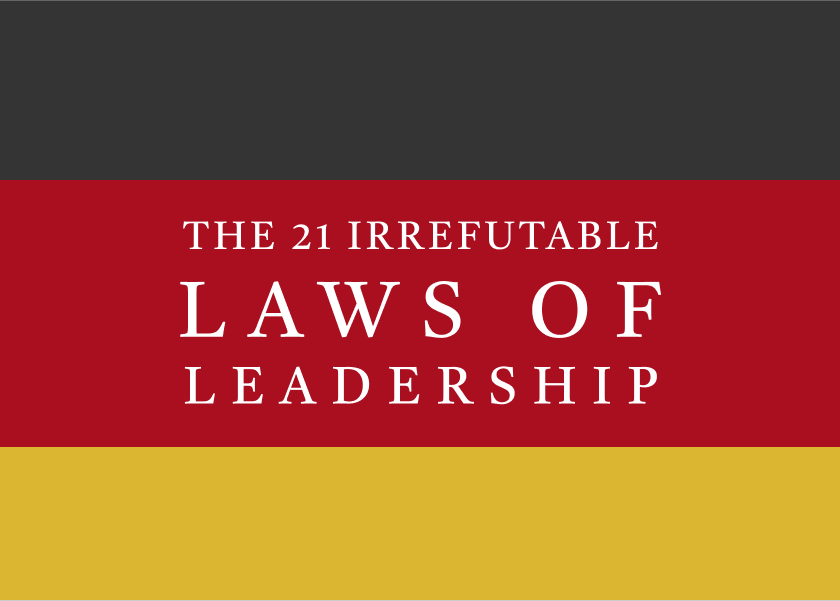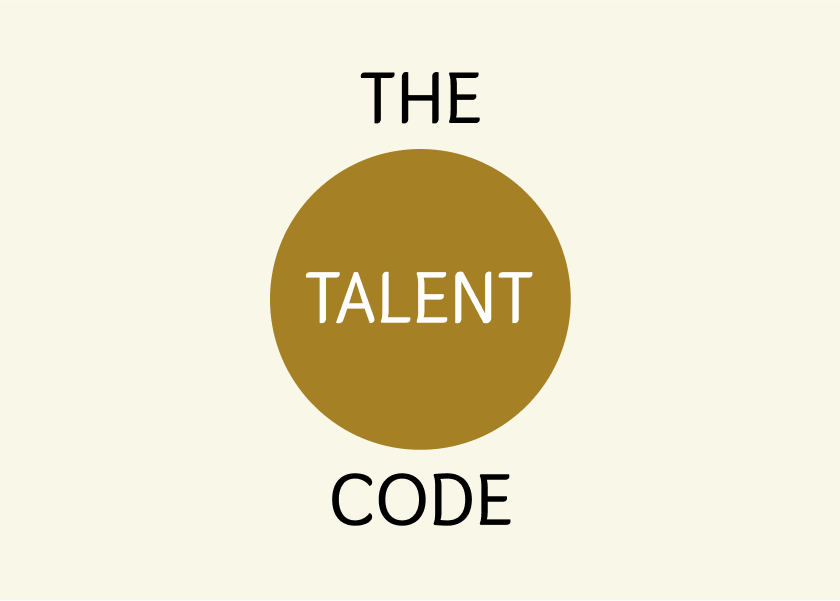Man's Search for Meaning by Viktor Frankl - Summary
Explore how to find purpose even in the darkest times. This book presents a way to find meaning through suffering, love, and action. It emphasises that each individual has unique potential and responsibility to find what gives their life purpose.

The following is a summary of the book Man's Search for Meaning by Viktor Frankl.
Listen to ShelfHelp's podcast summarising the book Man's Search for Meaning.
Introduction
Have you ever wondered how to find meaning in a world that often seems meaningless? Viktor Frankl's Man's Search for Meaning offers a profound answer to this question, born from the depths of his experiences in Nazi concentration camps. This book is not just a historical account; it is a powerful guide to discovering purpose and resilience, even in the most challenging circumstances. It is a moving personal narrative combined with Frankl’s psychological theory of logotherapy. This article will provide a detailed overview of Frankl's work, saving you time while offering actionable insights you can apply to your life.
Table of Contents
- About the Author
- Who Should Read This Book?
- Key Insights and Themes
- Detailed Summary
- Review
- Actionable Takeaways
- FAQs
- Conclusion
About the Author
Viktor E. Frankl (1905-1997) was an Austrian neurologist and psychiatrist. He was a professor at the University of Vienna Medical School and the founder of logotherapy, also known as the Third Viennese School of Psychotherapy. Frankl's personal experiences as a prisoner in Auschwitz, Dachau, and other concentration camps during World War II deeply influenced his work. His theories are considered major contributions to the field of psychotherapy, making his insights incredibly valuable. He authored thirty books that have been translated into twenty-three languages.
Who Should Read This Book?
Man's Search for Meaning is essential reading for:
- Anyone grappling with a sense of meaninglessness or existential questions
- Individuals facing significant adversity, loss, or suffering.
- Those interested in psychology, particularly existential psychology and logotherapy.
- People seeking a deeper understanding of human resilience, purpose and motivation.
- Professionals in fields such as counseling, social work, and healthcare.
- Anyone seeking inspiration and practical wisdom to live a more fulfilling life.
Key Insights and Themes
Here are the key takeaways, main ideas, and biggest lessons from Man's Search for Meaning:
- The Will to Meaning: The primary motivational force in humans is the search for meaning, not pleasure or power.
- Meaning in Suffering: Suffering can be a path to meaning if it is approached with the right attitude.
- Freedom of Choice: Even in dire circumstances, individuals retain the freedom to choose their attitude and response.
- Self-Transcendence: Meaning is found by focusing on something or someone outside of oneself.
- The Existential Vacuum: The feeling of meaninglessness is a common modern phenomenon that can lead to neurosis.
- Logotherapy: This therapeutic approach focuses on helping individuals find meaning in their lives.
- Tragic Optimism: It's possible to maintain optimism despite suffering, guilt, and death, by turning these negative aspects of life into something positive.
- Responsibility: Freedom and responsibility are inextricably linked, with freedom in danger of degenerating into arbitrariness unless lived in terms of responsibility.
Detailed Summary
Man’s Search for Meaning is divided into two main parts, plus a postscript. The first part of the book is an autobiographical account of Frankl’s time in concentration camps, while the second part introduces his therapeutic theory of logotherapy.
Part One: Experiences in a Concentration Camp
- The Initial Shock: Frankl describes the brutal reality of arriving at Auschwitz, including the selection process, the stripping away of possessions, and the loss of identity.
- Psychological Reactions: Prisoners initially experience a “delusion of reprieve,” believing that things might not be as bad as they seem. This is followed by apathy and a struggle for self-preservation.
- Finding Meaning: Frankl explains how prisoners found ways to endure their suffering through images of loved ones, religion, humor, and appreciation of nature.
- The Importance of Choice: Despite horrific conditions, prisoners could still choose how they reacted to their circumstances. This internal freedom is what separated the ones who survived, and those who did not.
- Spiritual Life: Even in a concentration camp, spiritual life could deepen. People with a rich inner life were able to retreat from their surroundings and maintain a sense of inner freedom.
- The Meaning of Suffering: Suffering was not meaningless if approached correctly. It is possible to make a victory of experiences, turning life into an inner triumph.
- Time Experience: The camp experience distorted one's sense of time, where a day seemed endless and yet larger units of time, like a week, seemed to pass quickly.
- The "Why" of Survival: Frankl quotes Nietzsche: “He who has a why to live can bear with almost any how.” This illustrates the idea that the will to meaning is a powerful tool for survival.
- The Loss of Values: The dehumanizing environment of the camp led to a loss of values. In a world that devalued human life, some lost their sense of self, but others fought to maintain their dignity.
- The Struggle for Self-Preservation: A constant fight for survival led some prisoners to lose all scruples, using brutal force, theft and betrayal to save themselves.
- The Inevitability of Death: The constant threat of death and the arbitrary nature of selections made life feel cheap and meaningless. Some prisoners were able to find meaning even in the face of death and some chose to accept fate.
- Liberation: Frankl describes the psychological challenges faced by prisoners after liberation, including the need to re-establish their sense of self and process their experiences.
Part Two: Logotherapy in a Nutshell
- Logotherapy Defined: Logotherapy focuses on the meaning of human existence and man's search for it. It posits that the striving to find meaning is the primary motivational force in human beings, rather than pleasure (Freudian psychoanalysis) or power (Adlerian psychology).
- The Will to Meaning: Man is motivated by his will to meaning and is able to live and die for ideals and values.
- Noögenic Neuroses: These arise from existential problems, such as the frustration of the will to meaning, and are best treated with logotherapy.
- Noö-dynamics: Mental health depends on the tension between what one has already achieved and what one still ought to accomplish.
- The Existential Vacuum: This is the feeling of total meaninglessness and inner emptiness, which is a widespread phenomenon in the 20th century. This is often due to a loss of basic instincts and traditions.
- The Meaning of Life: It differs for everyone and changes from day to day and from hour to hour. It isn't a generalized or abstract concept. Each individual's task is unique.
- Self-Transcendence: Being human means being directed towards something or someone other than oneself, whether it’s a cause to serve or a person to love.
- The Meaning of Love: Love is the only way to grasp another human being in their innermost core.
- The Meaning of Suffering: Even in hopeless situations, one may find meaning in suffering. This might be through turning a personal tragedy into a triumph or by bearing witness to the uniquely human potential at its best.
- The Super-Meaning: This refers to an ultimate meaning that exceeds the finite intellectual capacities of humans.
- Paradoxical Intention: This logotherapeutic technique helps patients detach themselves from their neurosis through a sense of humor. It involves intentionally trying to manifest the very symptom the patient is trying to overcome.
- Self-Detachment: The ability to detach oneself through humor is a critical part of paradoxical intention.
- Dereflection: Hyper-intention and hyper-reflection can be counteracted by redirecting attention to something or someone other than oneself.
- Man's Freedom: Man has the freedom to take a stand toward conditions even though freedom is restricted. In addition to being subject to conditions, man is also capable of defying and braving them.
Postscript 1984: The Case for a Tragic Optimism
- Tragic Optimism: This means remaining optimistic despite pain, guilt, and death. Life retains meaning even with tragic aspects. It also involves turning suffering into a human achievement, deriving from guilt an opportunity to change, and using the transitoriness of life as an incentive to act responsibly.
- Meaninglessness and Modern Neurosis: Many people today have enough to live by but nothing to live for, with a feeling of meaninglessness as a major cause of modern neuroses.
- The Importance of Meaning Orientation: A strong meaning orientation is crucial for mental health and the prevention of suicide.
- The Three Ways to Find Meaning: These are by creating a work or doing a deed, by experiencing something or encountering someone, and by one's attitude toward unavoidable suffering.
- Conscience: Conscience acts as a guide by indicating the direction in which one has to move in a given situation. To accomplish this, conscience applies a set of criteria, or hierarchy of values, to the situation.
- The Value of the Individual: It is a mistake to value an individual based solely on their usefulness. There is a difference between being valuable because of dignity and because of usefulness.
Review
Man's Search for Meaning is a deeply moving and thought-provoking book.
- Strengths: Frankl's personal experiences give the book a powerful and authentic voice. His articulation of logotherapy is insightful and offers a practical framework for finding meaning in life. The book's exploration of human resilience and the will to meaning is inspiring and profoundly relevant. The integration of personal narrative with psychological theory makes the book both relatable and intellectually stimulating.
- Weaknesses: Some readers may find Frankl's writing style dense or abstract at times. The book’s focus on extreme suffering can be difficult to read. While logotherapy is a useful tool, some may question whether it can be applied to all circumstances, or may find it overly prescriptive.
Actionable Takeaways
- Identify Your Meaning: Reflect on what gives your life purpose, whether it is your work, relationships, or personal values. What tasks, goals, and causes are important to you?
- Embrace Suffering: Instead of avoiding pain, try to find a constructive way to deal with unavoidable suffering. Ask how you can use that suffering to make you a better person.
- Make Conscious Choices: Practice choosing your attitude in response to challenging situations. Be aware of your freedom to decide how you will respond.
- Focus on Self-Transcendence: Engage with the world by giving yourself to a cause or loving another person. How can you help others? What tasks or experiences can bring you closer to others?
- Cultivate Inner Strength: Develop your inner resources, such as your values, sense of humor, and faith to help you find meaning and purpose in life. Can you tap into these inner resources to help others?
- Challenge Meaninglessness: When feeling a void in your life, actively pursue tasks and experiences that can help to fill that void. What new experiences or challenges can you take on?
- Practice Paradoxical Intention: Use humor to detach yourself from fears or anxieties, or those of others. Can you reframe your fear to make it less powerful?
- Be Responsible: Make decisions that reflect your values and what you stand for. Be aware that freedom and responsibility are inextricably linked.
FAQs
- What is Man's Search for Meaning about?
- It's a book about finding purpose and meaning in life, even in the face of extreme suffering. It combines a personal account of life in concentration camps with the philosophical and therapeutic approach of logotherapy.
- Is Man's Search for Meaning worth reading?
- Yes, it is a highly recommended book for anyone interested in psychology, personal growth, and existentialism. It offers valuable insights into human resilience and the will to meaning.
- What is logotherapy?
- It's a psychotherapeutic approach developed by Viktor Frankl that focuses on helping individuals find meaning in their lives. It is based on the idea that the primary motivational force in humans is the search for meaning.
- What is “tragic optimism”?
- It’s the ability to remain optimistic despite the unavoidable aspects of life including suffering, guilt, and death. It suggests we can turn negative experiences into something positive and constructive.
- How does Frankl define "meaning"?
- Meaning is not an abstract concept. It is something that is unique to each person, and changes based on the circumstances. It can be found in the things we do, the people we love, and our attitude to the difficulties we face.
- What is the existential vacuum?
- It is a feeling of meaninglessness, inner emptiness, and boredom, a widespread modern phenomenon due to a loss of instincts and traditions.
- What is paradoxical intention?
- It's a logotherapeutic technique that uses humor and self-detachment to treat conditions such as phobias and obsessions. It involves the patient trying to manifest the very symptom they are trying to overcome.
Conclusion
Man's Search for Meaning is more than just a book; it’s a profound testament to the human spirit's capacity to endure and find meaning in the darkest of times. By applying the lessons of logotherapy, we can all find our unique purpose, embrace our inner freedom, and live a more fulfilling life. Now is the time to reflect on your own search for meaning and make a commitment to live more purposefully. Don’t wait any longer to begin your journey towards a life of purpose and resilience.
As an Amazon Associate, ShelfHelp may earn money from qualifying purchases. Needless to say, ShelfHelp only includes affiliate links to books we recommend and think are worth your time reading.




